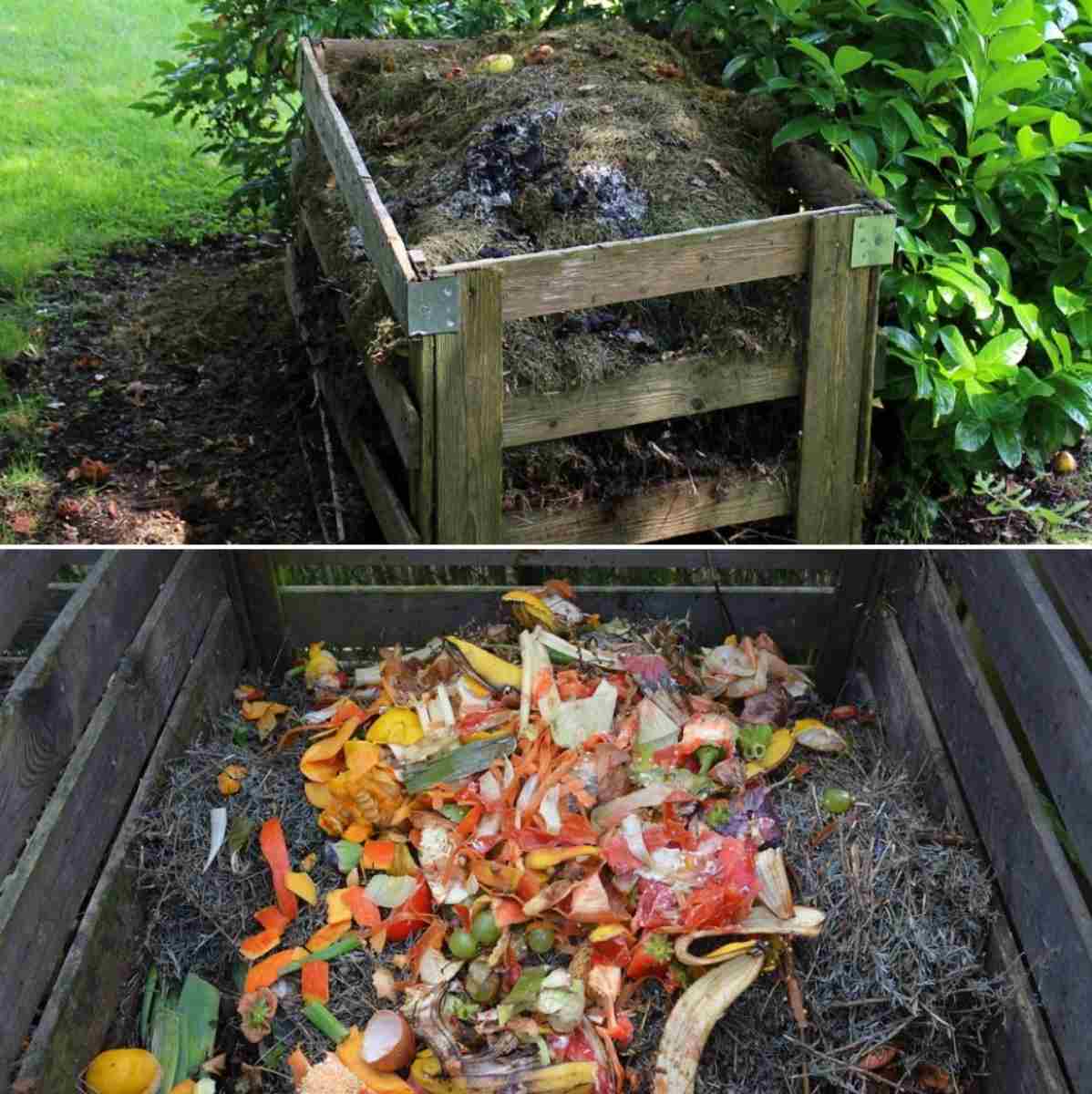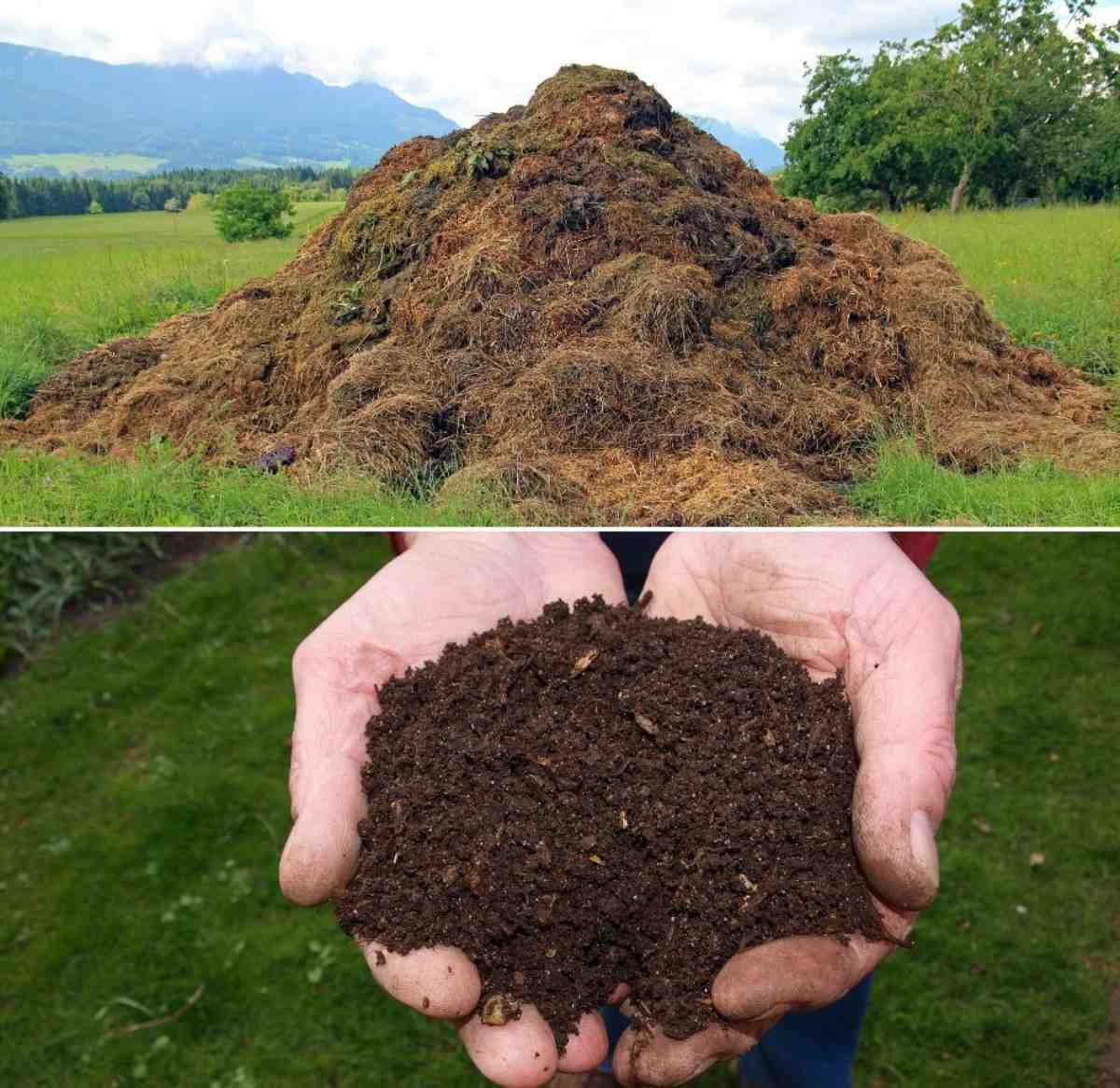Subsidy available for composting: Today, let us go through the schems and subsidy for composting of organic farming. Composting means microbiological conversion of biodegradable or organic wastes such as wood wastes, agri-wastes, vegetable or fruit wastes etc. into a nutritious substance called humus by indigenous action of the micro flora such as bacteria, fungi, actinomycetes and also earthworms.
During this process of composting, micro-organisms like bacteria, fungi, actinomycetes and earthworms breaks down the complex organic compounds into the simpler forms or substances which are easily absorbed by the plants and produce CO2, water, minerals and stabilized organic matter. This method of conversion also produces heat which destroys pathogens that are harmful and disease causing micro-organisms to the plants and even weeds seeds in the plantations. Raw materials are easily composted and even faster than other wastes comparatively under the suitable conditions such as the micro-organisms and earthworms in vermicompostingare established and maintained, which in turn after ingestion yielded nutrient rich material call humus. This is used for the healthy growth of the plant and also improves the soil fertility. What are we wating for let us get into the details of subsidy for composting which inturn helps organic farming.
A guide to subsidy for composting, organic farming

Benefits of composting process
Compost prepared from fruits and vegetable waste or the biodegradable wastes and also from agro waste hasseveral benefits which are mentioned below:
Benefits offered to the agricultural sector
- The end products of compost i.e., humus increases the soil fertility as well as the soil health, and also improves water holding capacity of soil.
- Improves soil biodiversity as the humus contains many micro-organisms.
- Humus supports the vigorous growth of the plant and produces high quality yield which in turn increases productivity.
- Humus is forms the rich source of plant nutrients that can be easily absorbed by plants.
- Humus does not leave any harmful residues as like chemical pesticides, weed seeds, heavy metals, sand, termite, wax, plant rootdiseases, and many more etc.
Benefits offering to the state
- Composting actually reduces the space or land for disposing the wastes of fruit and vegetable in this growing population.
- Humus create better environment in fact pollution free environment, and thus reducing ecological risk.
- It helps in reducing the dumping of wastage containing rich raw material into landfills as the same wastage isbeing used for making the compost.
- Composting also helps in reduction of disposal and even the soil amendment costs.
You shoulld not miss the Seed Subsidy Schemes.
Compost subsidy list
- Based on the NMSA scheme, the financial assistance of up to 50% of cost total project or unit, subject to a limit of Rs.5,000/- per hectare and Rs.10,000/- per beneficiary is provided by the government for the promotion of organic inputs. Financial assistance of Rs. 20,000/- per hectare and is subjected to maximum of Rs.40,000/- per beneficiary or applicantwhich will be of three year term is provided under Participatory Guarantee System – PGS certification.
- Under this scheme the financial assistance of Rs.10 lakh per village is givenby the government for the usage of organic in the fields. The financial assistance upto 33% of the subsidy which is subjected to a maximum ceiling amount of Rs.63 lakh to individuals or the private agencies as back-ended subsidy through NABARD is provided. Also 100% assistance to state Government and the Government agencies which will be upto a maximum limit of Rs.190 lakh per unit is provided as the Capital Investment for setting up Agro or vegetable waste compost with a capacity of 3000 tons per annumproduction. Financial assistance of 25% of total finance which is subjected to a ceiling of Rs. 40 lakh is provided to the individuals or the private agencies as back-ended subsidy by NABARD. Also a subsidy of 100% assistance by the state government or the government agencies upto a maximum limit of Rs. 160 lakh per unit is provided as a capital investment for setting up the organic or the bio-fertilizer units with a capacity of upto 200 TPA.
- As per the guidelines of the scheme MIDH, Government is providing financial assistance for startingan organic farm of about Rs. 10,000 for 4 hectares, where an amount of Rs.300/- per hectare up to 4 hectare is provided to use the liquid form of bio-fertilizers. Government also provides assistance for organic cultivation of vegetables which is Rs. 10,000/- per hectareand can be spread over a period of 3 years as per the scheme. Financial assistance is provided for establishing vermi-compost units is 50% of total cost of the project and subjected to a maximum amount of Rs.50,000/- per beneficiary for a unit having a size of 30′ x 8′ x 2.5′ per unit. But forHDPE Vermi-bed should have 96 c ft size (12’x4’x2′) the assistance provided is be Rs. 16,000/- per bed and which will be limited to 50% of cost.
- For the market development the assistance is provided in the form of fixed amount which will be of Rs. 1500 per tonne for city compost mainly for the production and consumption of the product.
- Before the marketing and promotion of city compost is done through the many of the fertilizer companies. But now as the time passed, the compost manufacturers and other marketing entities which were recognized by the concerned State Government are also taking part for this purpose.
- The Fertilizer marketing companies might be eligible for the payment up to 50% based on the first point of sale to the dealerat the district level will be considered, and the balance shall be released on submitting the receipt from the retailer in the form of mFMS as well as issuing of the required certificates that are related to quantity and quality of sale that are issued by the respective State Governments in the mentioned prescribed forms.
- Fertilizer companies including the marketing entities are also co-marketedwith city compost for chemical fertilizers based on their dealer’s network. The mode of action, process, mechanism, and extent of these co-marketing products arebased on the levels of compost production, demand as well as other relevant factors which will be decided by the Department of Fertilizers.
- Under the BIS standard or the Eco-Mark will also be developed in contact with BIS for making availablewith better marketingwith acceptance. This might be branded appropriately in a way that reflects in a particular way of initiative which is a part of Swachh Bharat Mission.
- A joint program will be held by Department of Fertilizers, related to the Ministry of Urban Development and Department of Agriculture to monitor and facilitate the main availability of the adequacy in the City Compost in terms mutually agreedin between compost manufacturers and other fertilizer marketing organizations or companies. They can also be authorised to resolve the co-ordination that are related to issue which might arise.
Benefits of the composting subsidy scheme
Incase if you miss this: SBI Agriculture Loan, Crop Loan in India.

Benefits of Compost Subsidy.
- Composting process in the city garbage that could not provide carbon and primary or the secondary nutrients that need the soil which helps in cleaning the City.
- Marketing development assistance that would lower the MRP of the City Compost for farmers.
- By using thecity compost in conjunction with chemical fertilizers which results in higher yield.
- Eco-mark is one of the major standardsfor the city compost that will be necessary that are environment friendly and quality-wise while the product reaches the farmers.
Tenor of payment
For the tenor of payment a time limit of 15 months just for the completion of the project, and it also just offers also a grace period of 3 months with justification from banks. In case if the project is not completed within the specified period, then the subsidy is withdrawn in advance where the subsidy has to be refunded. For this repayment option of the loan, bio-fertilizer or the organic fertilizer units, bio-pesticide units, fruit and vegetable compost units as welland are permitted up to 10 years including a grace period of two years. The financing institution especiallydetermines the rate of interest based on their norms applied for.
That’s all folks about subsidy available for composting of organic farming. You may apply this information for subsidy on vermicompost, and government subsidies for organic farming. You might be interested in Making Chicken Manure Compost for Garden Plants.
I want to know about Polly house cost per acre and subsidy by government.